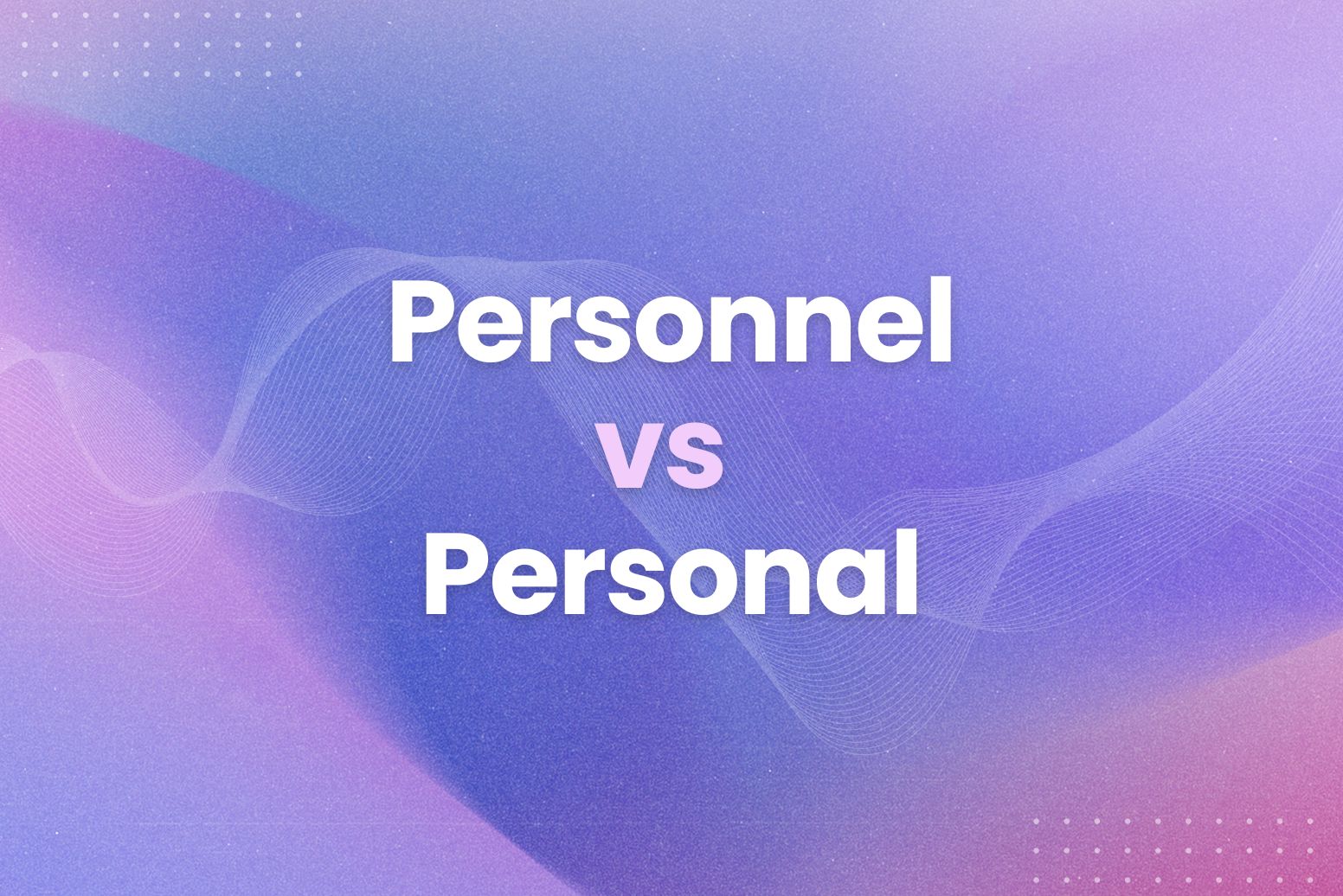The English language is an intricate system of words, each with its nuances and specific roles. Among its many pairs of similar-sounding words, “personnel” and “personal” often stand out as a source of confusion. As such, it can lead to a lack of understanding of “personnel vs personal” in different contexts. Despite their phonetic resemblance, these terms operate entirely differently regarding what they mean.
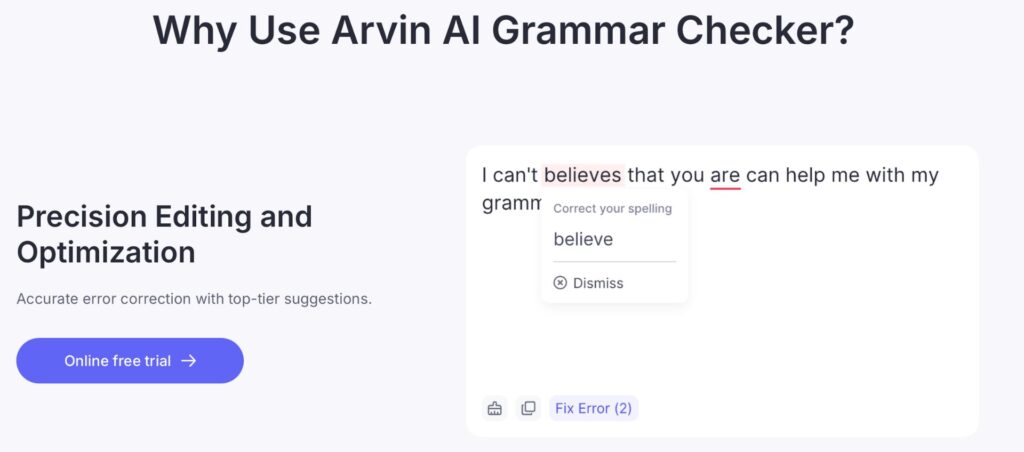
If you want to skip directly and check your writing, try out Arvin AI’s free Grammar Checker!
Personnel vs Personal Meaning
Definition of Personnel
Personnel refers to a group of people employed by an organization or working collectively.
Usage and Examples: Personnel
Primarily used in professional contexts, personnel is synonymous with “staff” or “workforce.”
- “Microsoft’s personnel are undergoing training to improve productivity.”
- “Military personnel were commended for their exceptional service.”
Definition of Personal
Personal, is an adjective that describes matters specific to one’s private life, belongings, or emotions.
Usage and Examples: Personal
Personal zeroes in on individuality. It’s about what’s uniquely yours—emotions, preferences, or possessions.
- “The letter contained details of a deeply personal nature, I don’t think you should be asking him about it.”
- “She carries a journal to record her personal thoughts and experiences, and she never skips a day.”
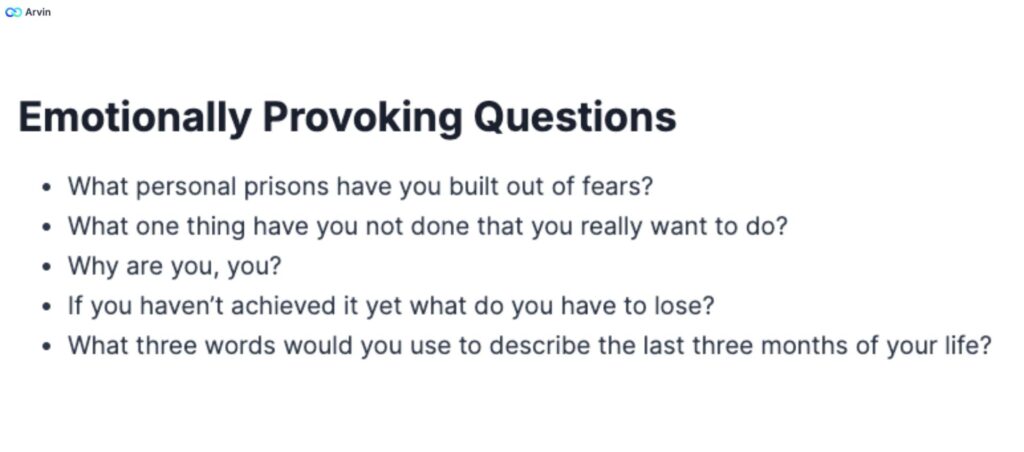
Speaking of personal, look at our list of thought-provoking questions to dive deep into your own thoughts and feelings.
Personal Plural
Adjective
The word personal is an adjective, and adjectives in English do not have plural forms. Instead, they describe singular or plural nouns without changing themselves. For example:
- Singular: “Her personal diary is locked.”
- Plural: “Their personal items were placed in separate lockers.”
Noun
If you mean to use personal as a noun, it usually doesn’t stand alone in standard English. However, in some informal contexts or industries, it might appear as shorthand for “personal belongings” or “personal matters.” For instance:
- “They packed their personals and left the hotel.”
In this usage, it’s technically a plural, though it’s not a formal or widely recognized plural form of the adjective personal. For clarity, it’s always better to specify the noun being referred to (e.g., “personal belongings”).
Personnel Singular
Collective Noun
The word personnel is a collective noun and is inherently plural, referring to a group of people, such as employees or staff. It does not have a standard singular form because it represents a group as a whole.
Singular Alternatives
However, if you need to refer to a single individual within the group, you would use a specific term like:
- Employee
- Staff member
- Team member
- Worker
For example:
- Singular: “The Subway staff member was praised for their dedication.”
- Plural: “All personnel were briefed on the new policy regarding throwing away excess food.”
In summary, while personnel itself doesn’t have a singular form, you can use terms like “employee” or “staff member” to refer to an individual within the group.
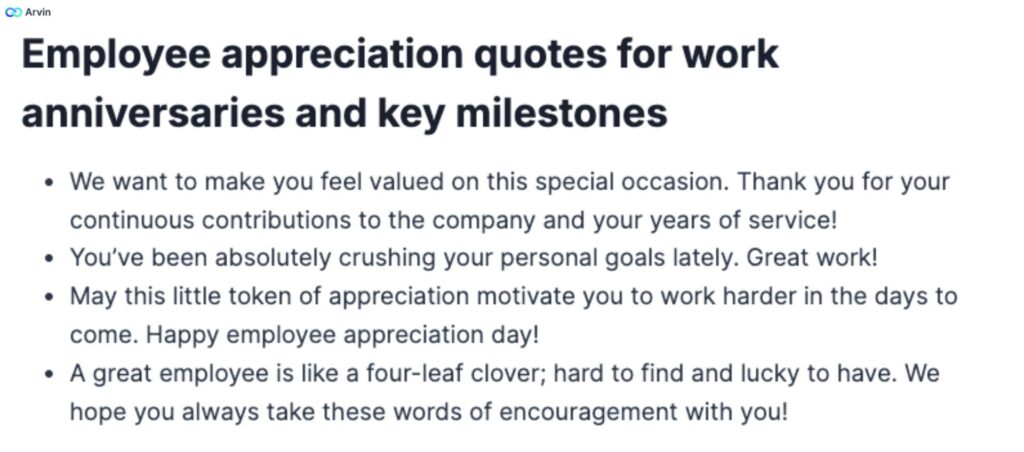
Speaking of personnel, why don’t you check out some employee appreciation quotes to send to your colleagues or team members to boost their day?
Personal vs Personnel Examples
Personal Examples
- She kept her personal diary hidden from everyone.
- This is a personal matter, and I’d prefer to discuss it privately.
- He shared some personal experiences during the meeting, which added a relatable touch.
- Always bring your personal identification when traveling.
- The room was decorated to reflect her personal style.
- Tony Stark’s personal assistant, Pepper Potts, always kept his private life in order despite his chaotic superhero duties.
- In Friends, Ross’s constant blunders often turned Rachel’s personal matters into public drama.
- Harry Potter fans will recall how Harry’s personal struggles with his past shaped his destiny as “The Chosen One.”
- Katniss Everdeen in The Hunger Games didn’t like sharing her personal feelings but couldn’t avoid opening up to Peeta.
- If Bruce Wayne had a personal playlist, it’d be full of brooding tracks to match his Batcave vibes.
Personnel Examples
- The company’s personnel are required to attend the safety workshop.
- Military personnel are trained to handle such emergencies.
- The HR department manages all matters related to the organization’s personnel.
- New personnel have been hired to handle customer inquiries.
- The facility’s personnel ensured the event ran smoothly.
- In The Office, Dunder Mifflin’s personnel included quirky characters like Dwight and Jim, who kept HR on their toes.
- In Star Wars, the Rebel Alliance’s personnel were a mix of pilots, strategists, and fearless leaders like Leia Organa.
- The Avengers’ personnel are Earth’s mightiest heroes, but let’s be honest—Hawkeye probably still has to fill out timesheets.
- Hogwarts couldn’t function without its personnel: teachers like McGonagall and support staff like Hagrid.
- In Stranger Things, Hawkins Lab’s personnel seemed shady from the start, fueling the chaos with Eleven and the Upside Down.
Key Difference Between Personnel vs Personal
- Personal is about individuality or private matters.
- Personnel refers to a group of employees or staff members.
Personal vs Personnel Pronunciation
Personal Pronunciation
- Phonetic Spelling: PUR-suh-nuhl
- The emphasis is on the first syllable (PUR), and the last syllable sounds softer, like “nuhl.”
Personnel Pronunciation
- Phonetic Spelling: PUR-suh-NEL
- The emphasis is on the last syllable (NEL), making it sound distinct and more formal compared to “personal.”
What Is the Difference Between Personnel vs Personal?
Personnel vs personal are fundamentally distinct in meaning and usage.
Context and Meaning
- Personnel refers to employees or staff.
- Personal relates to private matters or individuality.
Grammar and Function
- Personnel is a noun.
- Personal is an adjective.
Application in Sentences
- Correct: “Our HR personnel are reviewing applications.”
- Incorrect: “Our HR personal are reviewing applications.”
Personal or Personnel File?
Whether you use personal or personnel file depends on the context, as each word has a specific meaning:
Personal File
A personal file refers to a file that belongs to an individual or contains private information about someone. It may include personal documents, letters, or notes.
- Examples:
- “She saved her old emails in a personal file on her laptop regarding the embezzlement that has been going on.”
- “The lawyer reviewed the client’s personal file to prepare for the double homicide case.”
Personnel File
A personnel file is an official document maintained by an organization, typically in the HR department, that contains information about an employee. It may include records of employment, performance evaluations, and workplace-related documents.
- Examples:
- “HR requested updates to the employee’s personnel file to include the latest training certificates.”
- “The manager referred to the personnel file to verify the employee’s years of service in Subway.”
Key Difference
- Use personal file for individual, private, or non-work-related information.
- Use personnel file for employment or HR-related documents concerning staff or employees.
When in doubt, think:
- Personal = Private.
- Personnel = Professional/Work-related.
Personal Security and Personnel Security
Personal security and personnel security are distinct terms used in different contexts, each with its unique meaning and application. Here’s a clear breakdown of their differences:
Personal Security
Personal security refers to the measures an individual takes to protect themselves from threats, harm, or danger. This concept focuses on safeguarding personal well-being, whether physical, digital, or emotional.
- Examples:
- Using strong passwords and two-factor authentication to ensure personal security online.
- Hiring a bodyguard to ensure the personal security of a high-profile individual.
- Taking self-defense classes as part of improving personal security.
Personnel Security
Personnel security refers to the procedures and policies organizations implement to ensure that their staff or employees can be trusted to protect sensitive information, assets, or operations. This often involves vetting processes, background checks, and ongoing monitoring.
- Examples:
- Conducting background checks on new hires as part of the personnel security process.
- Revoking access to secure facilities for terminated employees to maintain personnel security.
- Training staff on safeguarding classified information to improve personnel security in a government agency.
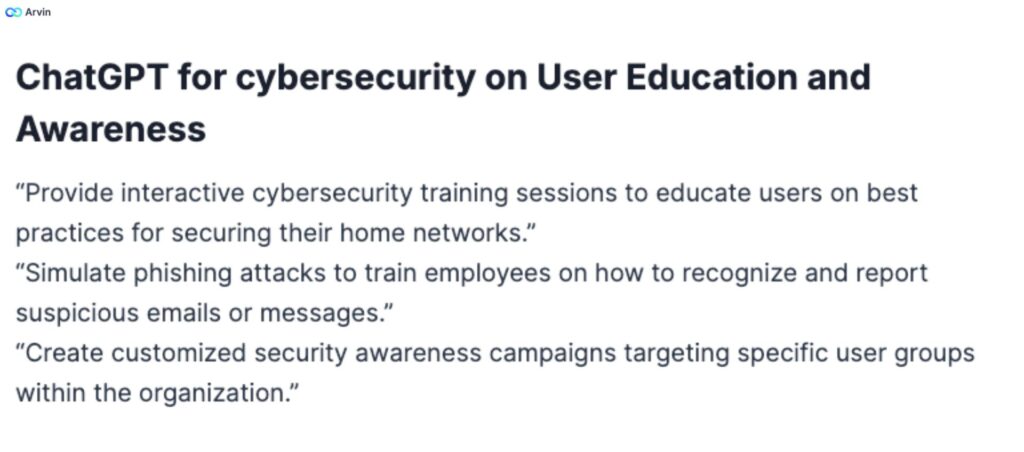
Check out our list of ChatGPT prompts for cybersecurity.
Key Differences
| Aspect | Personal Security | Personnel Security |
| Scope | Focuses on protecting an individual. | Focuses on managing and protecting a workforce. |
| Context | Applies to private or individual safety measures. | Applies to organizational or institutional security. |
| Examples | Physical protection, cybersecurity, self-defense. | Employee vetting, background checks, access control. |
| Primary Concern | Individual safety from external threats. | Preventing insider threats or breaches within teams. |
Difference Between Personal and Personnel Management
Personal Management
Personal management focuses on the management of an individual’s personal activities, time, or resources.
Definition:
The practice of managing one’s own time, priorities, finances, or personal development.
Examples:
- Creating a schedule to balance work, family, and hobbies.
- Managing personal finances, like budgeting and saving.
- Setting personal goals for health, education, or career growth.
Key Focus:
Individual productivity, self-discipline, and personal growth.
Context:
This often applies to individuals rather than organizations. It emphasizes self-management and accountability in personal life.
Personnel Management
Personnel management is a professional practice within organizations, focusing on managing the workforce.
Definition:
The administrative function of managing employees within an organization to optimize their contribution and satisfaction.
Examples:
- Recruiting and onboarding new employees.
- Managing employee benefits, salaries, and workplace grievances.
- Organizing training programs to improve workforce skills.
Key Focus:
Managing human resources to align with organizational goals and maintaining a productive workforce.
Context:
This always applies within organizational settings, typically handled by HR departments or managers.
| Aspect | Personal Management | Personnel Management |
| Scope | Individual management of personal tasks and goals. | Organizational management of employees and workforce. |
| Focus | Time management, personal growth, and life balance. | Recruitment, employee satisfaction, and productivity. |
| Application | Personal or private life. | Professional or organizational context. |
| Example Activities | Budgeting, goal-setting, and time-blocking. | Hiring, training, and resolving workplace conflicts. |
Tips to Avoid Confusion
Manage your confusion with tricky grammar rules with our free Grammar Checker!
Understand the Context
Ask yourself: Am I referring to a group of employees or to something specific to an individual?
Use personnel for the former and personal for the latter.
Use Mnemonics
Think of the double n in personnel as representing multiple people (a team), whereas the single n in personal suggests individuality.
Practice with Examples
Write out sentences using both words to reinforce their distinctions:
- “The personnel department is responsible for hiring the phlebotomist.”
- “Her personal story about overcoming the odds and becoming the first female president inspired the entire room.”
Our Arvin AI Article Writer and AI Chat can help you gain familiarity with some practice questions, just take the first step and try it out!
Final Words
Mastering the distinction between personal and personnel may seem like a small step, but it’s a giant leap toward clearer and more professional communication. While personal keeps the spotlight on individuality and private matters, personnel zooms out to focus on the collective workforce or team dynamics.
Words matter, especially in a world where one typo can change the meaning of a sentence (or an email!). By understanding the context and nuances of these terms, you’re not just avoiding mistakes—you’re showing attention to detail, professionalism, and respect for language.
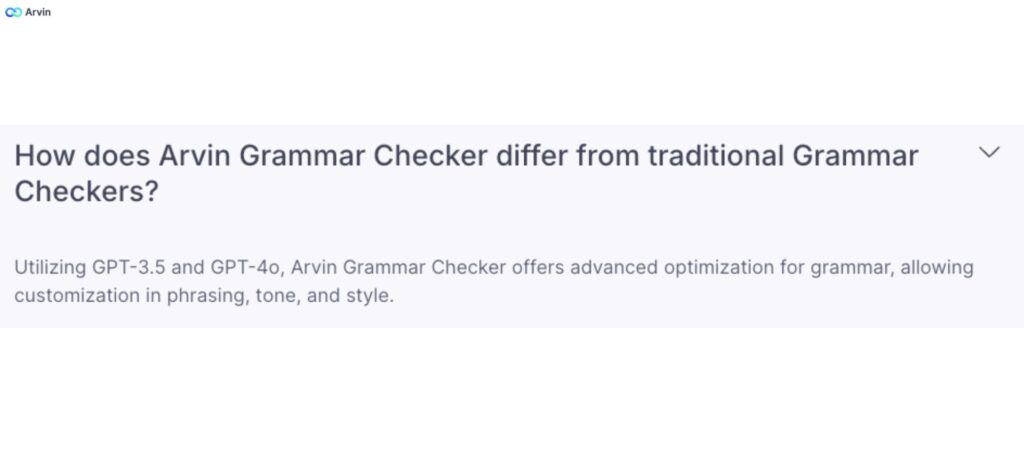
There’s no better way to simplify that process than Arvin AI’s Grammar Checker.
FAQ
No, personnel refers to a group of people, such as employees or staff members. If you’re referring to one person, you would say “employee,” “staff member,” or “team member.”
It’s office personnel. The term refers to the staff or employees working in an office. “Office personal” wouldn’t make sense in this context.
It depends on the context. Personal work refers to tasks related to an individual’s private matters whereas Personnel work refers to work related to managing employees or staff, often in a Human Resources (HR) context.
Personal is spelled P-E-R-S-O-N-A-L.
It’s personal email if referring to a private or individual email account. If referring to an email account used by employees collectively, it might be related to personnel matters, but the proper term would still likely be “work email” or “staff email.”
Personnel is spelled P-E-R-S-O-N-N-E-L.



